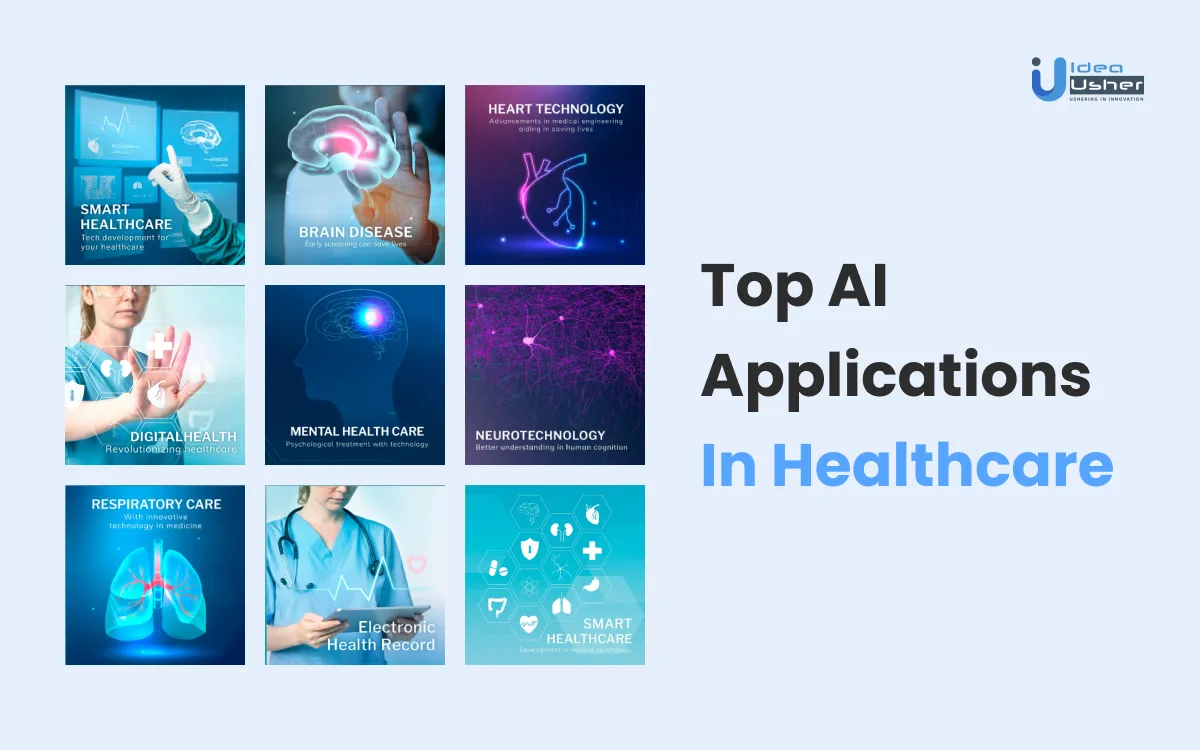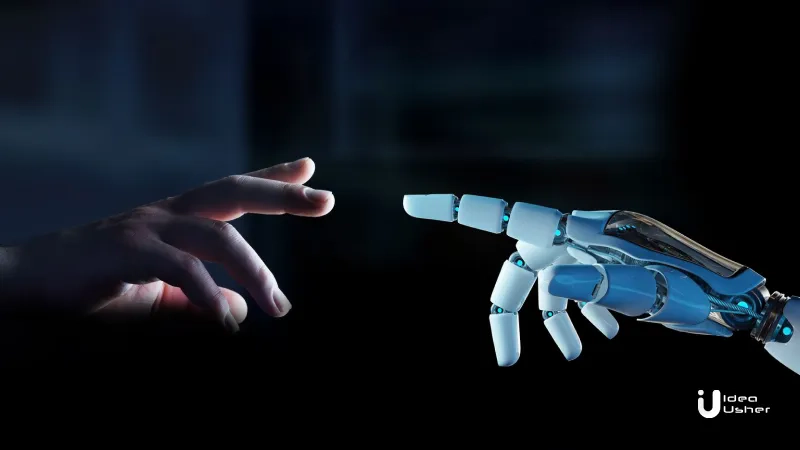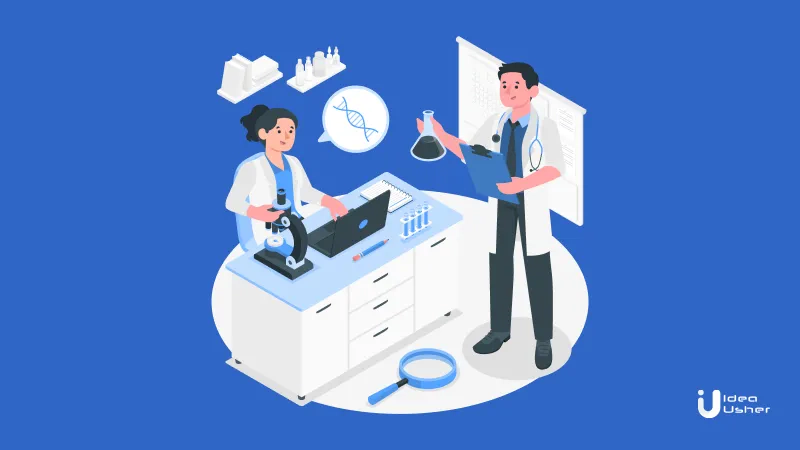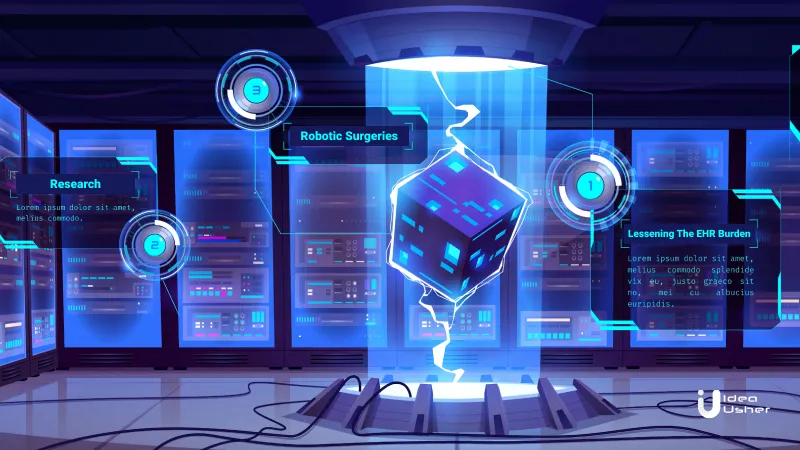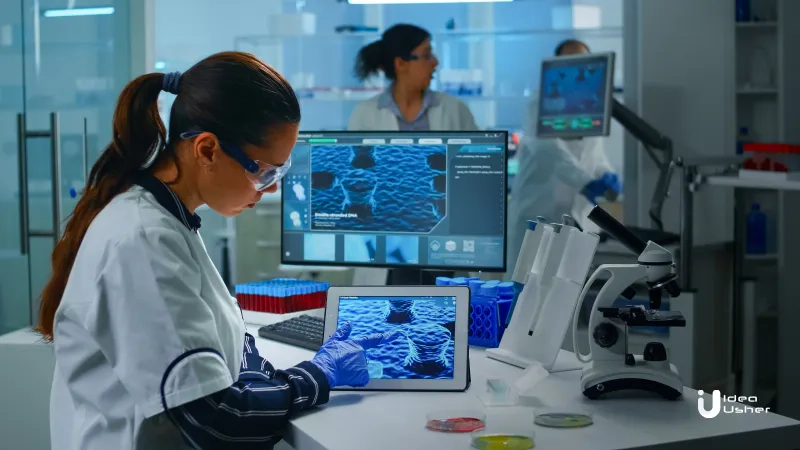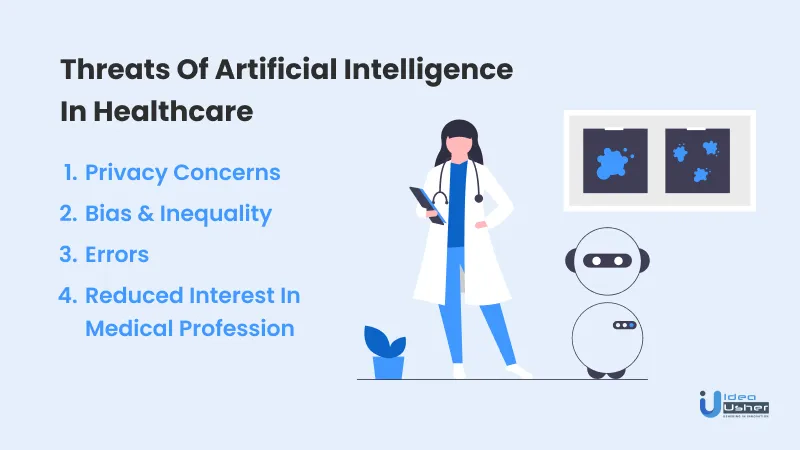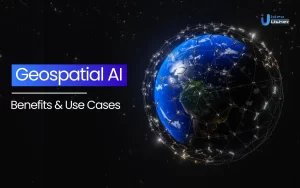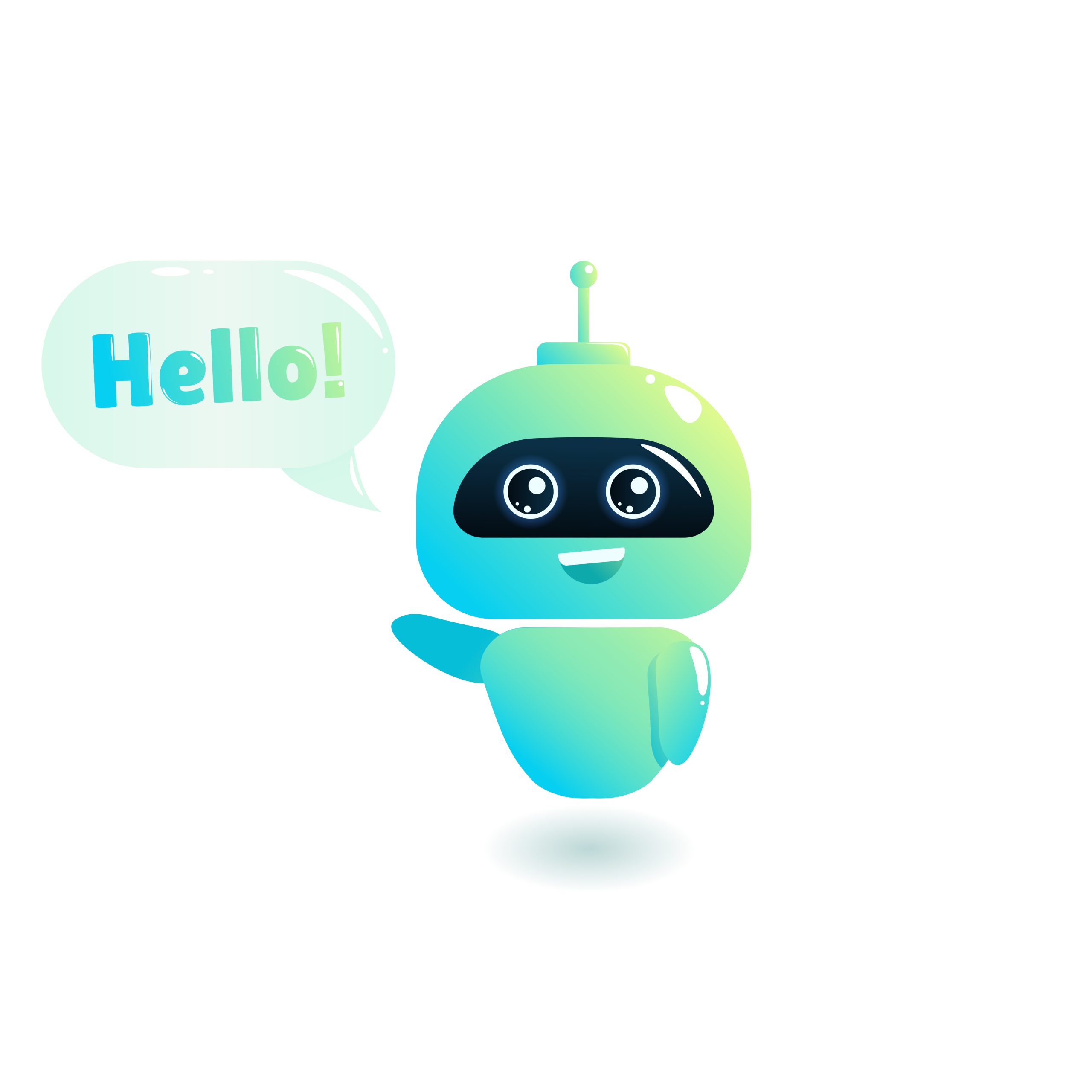Artificial Intelligence has spread its wings! It is now not just restricted to improving back-office productivity. It has emerged as a force to reckon with when it comes to improving healthcare outcomes. It augments the performance of healthcare experts. It has the potential to raise productivity considerably while not compromising on accuracy and speed. It fares well for both physicians and patients. If you are looking for the top AI applications in healthcare, you are at the right place!
AI is evolving at a brutal pace. It is becoming more and more sophisticated at doing what humans do, albeit more quickly. The potential for AI & robotics in healthcare is limitless.
It helps healthcare professionals & patients by investigating symptoms but also recommends personalized approaches to treatment. Additionally, it is also capable of detecting abnormal results and predicting risks. AI & robotics are gradually becoming an integral component of the modern healthcare ecosystem.
How AI Is Revolutionizing Healthcare?
In its most primitive form, AI can enhance the administrative & operational workflow of the healthcare sector by simple automation of several processes.
- Taking notes & analyzing medical records in the traditional electronic health records consume 34%-55% of a physician’s schedule on average. It is thus one of the significant factors that lessen physician productivity.
- Clinical documentation can deploy AI technologies that utilize natural language processing (NLP) to reduce physicians’ participation in documentation. Thus, they get more time to focus on top-notch care.
- If we look at the other end of the spectrum, health insurance companies benefit from AI implementation too! The prevalent mechanism of claims evaluation is time-consuming because insurers often uncover fraudulent claims. To combat that, NLP tools coupled with precision-driven AI algorithms can assist insurers in detecting issues within seconds. The insurance would not take days or months.
Top AI Applications In Healthcare- What’s Happening Across The World?
Any improvement in healthcare necessitates the integration of big data (of healthcare) and precise & punctual decisions. Not only does predictive analytics help with clinical decision-making & subsequent actions, but it also prioritizes administrative duties.
Pattern recognition is another segment where AI is starting to take root in healthcare. Using pattern recognition, AI can detect people at risk of acquiring a condition. It can even predict a condition’s deterioration owing to lifestyle and other variables such as environment, genome, etc.
1. IBM Watson
For instance, IBM Watson assists healthcare organizations in harnessing cognitive technologies to gain access to enormous volumes of health data to propel advanced diagnostics.
Watson can store & inspect a tremendously high volume of medical information. It ranges from medical publications to symptoms to case studies of therapy & remedies throughout the world.
2. Google DeepMind
In collaboration with researchers, clinicians, and patients, Google’s DeepMind Health focuses on solving real-world healthcare problems. This technology leverages machine learning and augments neuroscience to develop powerful all-purpose learning algorithms. Subsequently, it implements them in neural networks that closely mimic the human brain.
3. Grace- The RoboNurse
A joint venture of Hanson Robotics & SingularityNET led to the development of a brand new humanoid robot by Awakening Health. It has the potential to revolutionize healthcare & provide care and companionship to elderly patients.
Deftly named Grace, the robot nurse blends the preciseness of cutting-edge robotics. It can gather & assess data accurately in real-time with pure empathy and compassion that the human touch can only match.
- Her primary role is to alleviate loneliness and improve the mental health of patients by bonding with them.
- Grace also initiates several uplifting activities like guided meditation & even talking therapies.
- She perceives and responds to seven different human emotions.
- She can speak English and Korean flawlessly.
- She can mimic her subject’s facial gestures.
It can be said that she is the most sympathetic humanoid ever built.
Top 9 Common Applications Of AI In Healthcare- Diving Deep!
Here, we have compiled a list of the top AI applications in healthcare that are common.
1. Diagnostics
AI can aid healthcare experts by accelerating diagnosis and analyzing symptoms, suggesting treatments, and forewarning risks. It is also capable of detecting irregular results.
A lot many healthcare organizations have already started using smart symptom checkers. The AI can ask a patient a string of questions regarding their symptoms and recommend the subsequent steps for care based on the answers. For example, Buoy Health is an AI-powered health assistant that can prioritize patients having COVID-19 symptoms.
Also Read: How Artificial Intelligence Is Leading The Fight Against Covid-19?
2. Enhancing Primary Care Using Chatbots
Often, people schedule appointments with their preferred general practitioner for minor medical issues. Later on, those are recognized as false alarms or something small that could have been self-treated.
- Artificial Intelligence seeks to eliminate this and automate primary care. It will free up doctors for cases that actually require their attention.
- AI-powered chatbots, integrated with top-notch algorithms, can provide solutions to every trivial health-related query and guide them accordingly.
- Not only it saves money and time for the patients, but also it frees up doctors to attend to severe cases.
- These chatbots can be made available round-the-clock, and they come with the capability to deal with multiple patients simultaneously.
3. Boosting Patient Engagement
More often than not, patient compliance with treatment plans becomes a significant factor in deciding the healthcare outcome. When they are non-compliant and don’t take any initiative to follow the medication as directed, their health deteriorates.
Wearables & customized medical gadgets, like activity trackers & smartwatches, can aid both patients & clinicians in health monitoring.
These devices are also the best option for assisting patients following the treatment plans. AI tools can literally “ping” patients from time to time and deliver intended content that provokes compliant action.
4. Lessening The EHR Burden
EHRs (Electronic Health Records) have certainly played an essential role in the gradual march of the healthcare sector towards digitalization. However, its implementation has led to a series of challenges such as huge volumes of documentation, cognitive overload, and a resultant user burnout.
EHR developers have begun to apply AI to develop better intuitive interfaces. It is also automating the redundant activities that are lengthy and frustrate users.
Even though voice recognition & dictation techniques are now assisting in enhancing the clinical documentation process, natural language processing (NLP) methods might have their limitations. On the other hand, AI can do all of it faster while augmenting inbox requests, like medicine refills and providing notifications. AI can also prioritize tasks that demand immediate attention, making it easier for clinicians to work in a streamlined fashion.
5. Robotic Surgeries
AI & robotics are a potent mix! Although at its nascent stage, they are scripting a new era of surgeries by blending speed & accuracy while making delicate incisions. And unlike humans, robots don’t have a fatigue issue during a lengthy and crucial procedure.
AI robots can also leverage data from previous operations to design novel surgical methods. The fine-tuned accuracy progressively decreases the risk of tremors or accidental movements during surgery.
If you are looking for examples, Vicarious Surgical has developed surgical robots which blend virtual reality(VR) with AI-powered robots that facilitate minimally invasive operations. On the other hand, you can look at Heartlander. It is a tiny mobile robot capable of facilitating heart therapy.
6. Research
The journey of a drug from the research facility to the patient is time-consuming and expensive. The California Biomedical Research Association estimates that, on average, a drug takes 12 years to progress from a research lab to its intended patient.
Only 5/5,000 drugs that commence preclinical testing actually make it to human testing. And guess what? Only 1 out of 5 such drugs gets the final approval for human use. Additionally, it costs a bombshell (in millions) for new drug development- starting from a research lab to the patient.
Drug research & discovery has emerged as one of the newest fronts for AI in healthcare. Using the advances in AI to simplify the drug discovery & repurposing processes, pharmaceutical companies can reap benefits by significantly cutting down investment & time to market a new drug.
7. Training
AI paves the way for much better personnel training in the healthcare industry. It facilitates realistic simulations that simple computer-driven algorithms fail to deliver. The advent of AI and its ability to read through an extensive database of scenarios instantaneously implies that it can train & challenge a trainee- in a way that a human cannot.
Apart from that, the training program evolves itself by recording and analyzing the past responses from trainees. It implies that new challenges are accommodated to meet the progressive learning requirements.
Another benefit is that the training is possible remotely. With AI ingrained on a smartphone, speedy catch-up sessions are possible right after a tough clinic case or during traveling.
8. Healthcare System Analysis
Do you know that 97% of healthcare invoices are now digital in the Netherlands? A Dutch company utilizes artificial intelligence to filter through this data to highlight treatment errors, workflow roadblocks. It also assists the local healthcare systems in minimizing unnecessary patient hospitalizations.
The same formula can be replicated across countries across the world, benefiting both healthcare infrastructure and life expectancy.
9. Eliminating Redundant Tasks
AI can perform tedious activities such as analyzing tests, CT scans, X-rays, data entry, and similar tasks more quickly and precisely. For instance, the volume of data evaluation required in radiology & cardiology can be intimidating as well as time-consuming.
In the near future, cardiologists & radiologists will only go through the most complex instances when human supervision is absolutely necessary, thanks to AI!
Threats Of AI Applications In Healthcare
Here is a short glimpse of the threats that comes with the AI applications in healthcare.
1. Privacy Concerns- It’s Literally Everywhere!
Many patients believe that collecting massive datasets and the interchange of data between AI developers and health systems pose a serious risk. The AI systems can sneak into their privacy.
There is another aspect of privacy that needs to be taken into account. The AI can predict the unspoken, i.e., snoop into people’s private information even when they have not provided the data.
For example, Parkinson’s illness can be detected by an AI system based on the shivering hands of a person on a computer mouse. Now, what if the person hasn’t and doesn’t want to provide any information regarding it to anyone? In such a scenario, the patient might consider it a violation of privacy.
2. Bias & Inequality
It is a common problem that even the most advanced AI systems can face! Since AI learns through data provided to it during its training phase, it also absorbs the biases present in the data.
Let’s take an example. Let’s consider an AI which is fed with data mostly collected in a specific medical center. It can make the AI treat the patients from populations that don’t visit the medical center regularly with lower efficiency.
3. Errors
We console our errors by saying, “we are only humans.”
But what about artificial intelligence? One of the most significant hazards of AI in healthcare is probably the fact that an AI system may occasionally be incorrect.
What if it prescribes a wrong prescription?
Or makes incorrect diagnosis of clinical results? Such as a blunder in finding a tumor in a radiological scan?
Well, it carries the risk of serious health impact for a patient.
4. Reduce Interest In Medical Profession
In the long run, the deployment of AI systems could lead to tectonic shifts in the medical profession. The first repercussions might be felt in segments like radiology, where AI might automate the entire system.
This unleashes a debate on whether or not AI implementation can lead to a decline in human knowledge in the coming years. It can have far-reaching consequences where future-generation health service providers will fail to detect AI errors.
Wrapping Up
Even though clouds loom over this all-mighty technology, Artificial Intelligence can significantly boost the medical industry with faster service, diagnosis with pin-point accuracy. AI-powered data analytics can detect early trends or genetic defects that can expose people to particular diseases. Let’s hope you have enjoyed reading the top AI applications in healthcare.
In the end, (Artificial Intelligence + Machine Learning) = Progress! If you are looking to learn more, contact our AI Experts today!

